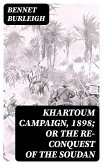In "The Essentials of Good Skirmishing," George Gawler presents a meticulous exploration of military strategy focused on skirmishing tactics. Drawing from both historical contexts and practical applications, Gawler employs a direct yet engaging literary style that combines analytical depth with accessible language. This treatise is situated within the broader framework of 19th-century military literature, which often emphasized discipline and conventional formations, but offers a refreshing perspective that highlights the importance of flexibility and rapid maneuverability in combat. Gawler's insights into the psychology of skirmishers and the terrain's vital role open new avenues for understanding infantry operations. George Gawler, a prominent military figure and strategist in the 19th century, was shaped by his experiences in various conflicts, which instilled in him a profound understanding of both the theory and practice of warfare. His firsthand experiences in the field, coupled with his analytical mindset, directed his focus toward refining the skills necessary for effective skirmishing. As a soldier familiar with the chaos of battle, Gawler perceived the necessity for a nuanced approach to infantry tactics, a realization that propelled his writing in this noteworthy text. "The Essentials of Good Skirmishing" is an essential read for historians, military professionals, and enthusiasts alike. It challenges conventional military doctrine and offers practical strategies that remain relevant in modern contexts. Gawler's expertise provides invaluable lessons in adaptability and strategic thinking, making this book a pivotal addition to any military library.
Dieser Download kann aus rechtlichen Gründen nur mit Rechnungsadresse in A, B, BG, CY, CZ, D, DK, EW, E, FIN, F, GR, H, IRL, I, LT, L, LR, M, NL, PL, P, R, S, SLO, SK ausgeliefert werden.









